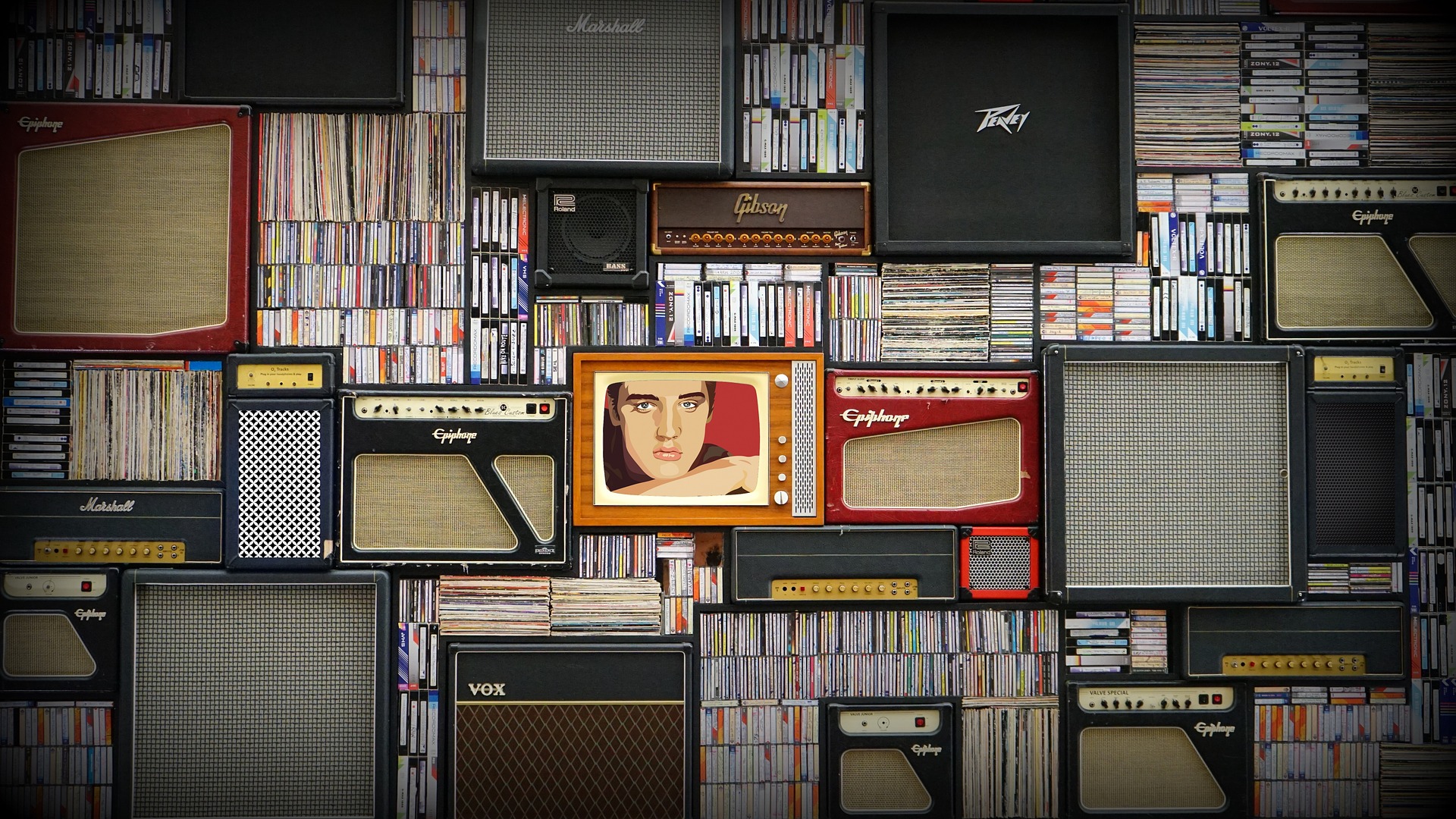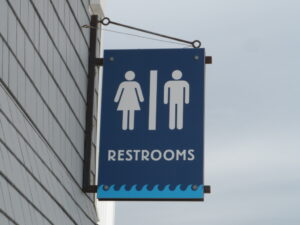This article is the second piece in the collaborative article series. The first article was published last month in October, and it introduced our writers and editors for the school year. This article is an opinion piece that centers on the Hollywood industry and the general media. The questions that I asked were pushed out through an optional Google Form, so the responses should be considered with regard to voluntary response bias. Without further ado, let’s take a look at what Unleashed writers have to say about t!
Is reality television healthy to produce or watch? How does it affect the actors and the viewers?
- Seneca Baldi: I feel like reality television cannot be healthy in almost any aspect. I will not lie and say I have never or will never watch reality TV, but I also will not claim that it is healthy. The production of reality TV has to be fabricated for the viewers. They must instigate fights between cast members and create drama to keep the shows interesting. I believe that very little of reality TV is actually real. For example, in Keeping Up With the Kardashians, one family member will show up at another’s house and just sit on the couch and find something to talk about. Knowing how busy Kim K. must be, I find it hard to believe that in her normal life she would show up at Scott Disick’s house just to ask him how he’s doing before finding something to talk about. I also think that reality television can be negative to watch, mostly for children but also for adults. For kids, if they watch a bunch of adults, and usually the shows portray women in this way, scream at each other over small issues without any real conflict resolution, that seems like a bad lesson on how to handle those situations. They also would see extreme drama which they may find to be the norm. Adults can also get negatively caught up in reality TV–watching rich people go on fancy vacations with their friends and live in these huge mansions and seem to do no work can be both an escape and something to make you jealous.
- Frannie Baldi: I think that it has its pros and cons. Reality TV is somewhat staged, even though they act like it’s all real, and that can be misleading to the people watching it. It can set unreasonable standards for the viewers’ lives or make them think they are doing something wrong in their life. The actors are also being portrayed in extreme versions of themselves that usually end up with them having a lot of haters. I think the actors’ lives are greatly affected and their lives become ones everyone “lives” in a sense. Reality TV can be relaxing to watch instead of another type of show, and some of them are more genuine than others. Travel shows, competitions, and survival shows are still staged to an extent, but the worst reality shows in my opinion are the ones that follow people’s lives every day and/or are based on someone their family.
- Rebekah Bennet: I feel like reality television is neither healthy to produce nor watch. First, reality TV stars constantly have their whole lives on display, and every private issue is exploited for as much money as the producers can make. I’m not saying that all producers are bad people, but in different reality TV shows we can see actors break down about issues like craving just a moment for themselves. Also, viewing reality TV can be detrimental to your mental health. Shows like Keeping Up with the Kardashians show an extravagantly wealthy lifestyle, which in turn could cause the viewer to resent their own way of living. For the majority of people, that lifestyle can not be considered “reality”.
- Kenzy Bibawi: I think that it is healthy in moderation. Obviously, I’m only looking at it from a viewing perspective, but you can’t tell me reality TV isn’t hilarious. I understand that sometimes it can be unhealthy if you’re trying to apply the things you see to your life and you’re taking it in as actual “reality,” but it’s like all other forms of entertainment, so I think it’s okay.
- Tracy Xie: I think that reality television is healthy to watch as long as it does not affect the watcher’s life. For example, if someone sees another perform a dangerous stunt, they may think that it looks cool and mimic it for fun. As long as reality television does not influence people in this way, it is safe and healthy to watch. However, humans like to follow each other and the result of reality television is likely going to be negative.
Are child stars subjected to fame too early? Are they being deprived of a chance for a “normal” childhood?
- Seneca Baldi: Yes, I think so. And not only the deprivation of a “normal” childhood, but the increased likeliness to do drugs at a young age. For children to have a normal childhood, they cannot be surrounded only by adults.
- Frannie Baldi: I think that child stars are famous too early and often end up with trauma that affects them in their teen and adult years. I think they’re definitely being deprived of a normal childhood and unfortunately, once they are “famous” they can’t really hide. I know of many actors, that are grown up now, that I used to watch on Disney and Nickelodeon who have come out and explained the experiences they had while being a famous child and how that affects them now. A lot of the experiences are negative. A child can’t really make the choice for themself whether or not they want to act or be famous. Their parents kind of force them into that young and they get trapped.
- Rebekah Bennet: Child stars are subjected to fame too early. We can see this in the case of stars turning to substance abuse as a way of coping with the stress of being a child star, as the actor of Kevin McCallister in Home Alone, Macaulay Culkin. Child stars have to deal with the preexisting stress of a celebrity but at a way younger age. They’re now in some cases unable to go to school, have friends who first started talking to them for another reason other than their fame, unable to go anywhere with friends and family, and having to deal with paparazzi.
- Kenzy Bibawi:Yes and no. Yes, they are subjected to fame too early, but, also, there needs to be children in media – like there is no way to portray children other than with children. It’s not like other age groups that you could make pass as others. I’m not saying that it doesn’t mean they are deprived of a normal childhood because they definitely are, but I don’t know how it would be possible to get around having children in the media.
- Tracy Xie: Yes, child stars are exposed to fame way too early. They have no sense of what life is like without a ton of people surrounding them and watching their every move. Their privacy is invaded at a young age that they don’t fully know how to protect themselves. Not to mention, hate. Hate affects celebrities all the time, and having the same impact put on someone much younger is much easier to achieve.
Has Hollywood become more diverse? Is there further progress to be made?
- Seneca Badi: Sort of, but not really. I still think that I see way more white people in movies and TV shows than BIPOC actors and actresses. There is always progress to be made, especially in Hollywood. Young kids of different races and ethnicities, those who are disabled, part of the LGTBQ+ community, and other groups should all grow up seeing themselves in TV shows and movies. For kids to accept themselves and love themselves as they are, they need to see other people who look like them and who celebrate the same traditions and customs as they do. No matter what group you are in or the way that you identify yourself, it should be easy to find someone in Hollywood who is like you.
- Frannie Baldi: I think Hollywood has definitely become more diverse than it was. Even within the past 20 years the actors and actresses are much more diverse and the depictions of certain people have changed from negative to positive. There is further progress to be made though because there are still many shows and movies being made surrounded around a white person, and most of them are men. I have noticed with shows that involve characters with disabilities and characters who are part of the LGBT+ community that they are mostly men and the only women who are featured are white. Women of color are not represented enough in movies and shows and that is somewhere progress needs to be made.
- Rebekah Bennet: Hollywood has become more diverse over time, but there is still a long way to go. Finally, after years and years, Hollywood has started to show people of more diverse backgrounds on the silver screen, but the issue lies in stereotyping. Hollywood has a big problem of fitting all their characters into a single box, writing them in as a way to check a box, to fill a requirement. Hollywood still has a long way to go.
- Kenzy Bibawi: Hollywood definitely has become more diverse, but there is progress to be made. Recently, there have been a lot more people of color being depicted in the media due to the surge in the Black Lives Matter movement. So, in terms of race, I think Hollywood has diversified a lot since early times, but, of course, they could do better. However, there is still under-representation of all other minorities, including different religious affiliations, sexuality, gender identity, etc.
- Riley Noone: Yes and no. My main point is that Hollywood tries to support the LGBTQIA+ community and yet those characters are normally portrayed by cis straight males/females. Especially when it comes to the whole transgender trope. I think they should include actors who understand and have gone through such a change rather than congratulating another who merely acted upon the stereotypes given about when it comes to this identity. The LGBTQIA+ community has come a long way, they deserve television shows, other than “coming out” tropes, that show that being a member of this community is a normal occurrence and not making it a big deal to mention they are of this community.
- Tracy Xie: In recent years, Hollywood has definitely introduced more diverse pieces and actors, however, they are not doing it in a good way. The industry is still a very large percentage predominantly white, and Hollywood makes diverse actors act with stereotypes Americans already have. However, these stereotypes are not true or valid generalizations, so they are inherently promoting racism.
Stereotypically, parents worry about their kids spending too much time watching tv or on social media…does this amount of time actually matter?
- Seneca Baldi: I don’t know the research behind how technology affects children, or adults for that matter. However, the more time children watch TV or go on social media, the less time they are outside, reading a book, socializing with their friends. I think there has to be a healthy way to go about it so kids are able to relax by watching TV or talking to their friends online, but it shouldn’t be the only thing they do, and they should be capable of socializing without the presence of technology.
- Frannie Baldi: I think that spending too much time on a screen is bad for a child. Spending a lot of time on social media can be bad for someone who tends to compare themselves to others. Social media shows fake portrayals of people and the best versions of themselves. Social media shows the one good day out of ten bad days, and this can be misleading for people scrolling through. Also, watching TV for too long can affect your brain. The content may be harmless, but playing a game or going outside is valuable and people spend a lot of time missing out on what life has to offer because they’re watching TV. So, yes, kids should be allowed some time watching TV or looking at social media, but the time should be monitored and kids should spend some time doing something else.
- Rebekah Bennett: I don’t believe that this amount of time matters. Though there have been studies that social media can be detrimental to a child’s mental health, I don’t personally believe that it matters that much. For example, I know in my personal experience that when time is limited, it makes you want to use social media more. Eventually, the curiosity about social media will pass, and the time spent on it will go down.
- Kenzy Bibawi: iPad kids are a real thing. So, yes, it does matter. There is a fine line between an okay amount of time to be watching TV or to be on social media, but it is extremely evident when it crosses that line by far. It affects sleep, academic performance, and overall happiness when children are constantly exposed to a distorted look of perfection from such a young age.
- Tracy Xie: I think the amount of time does matter, but not necessarily as much as parents may say. The negative result of using social media comes pretty instantly, so increasing the time may add to the negativity, but never as much as the very beginning.






